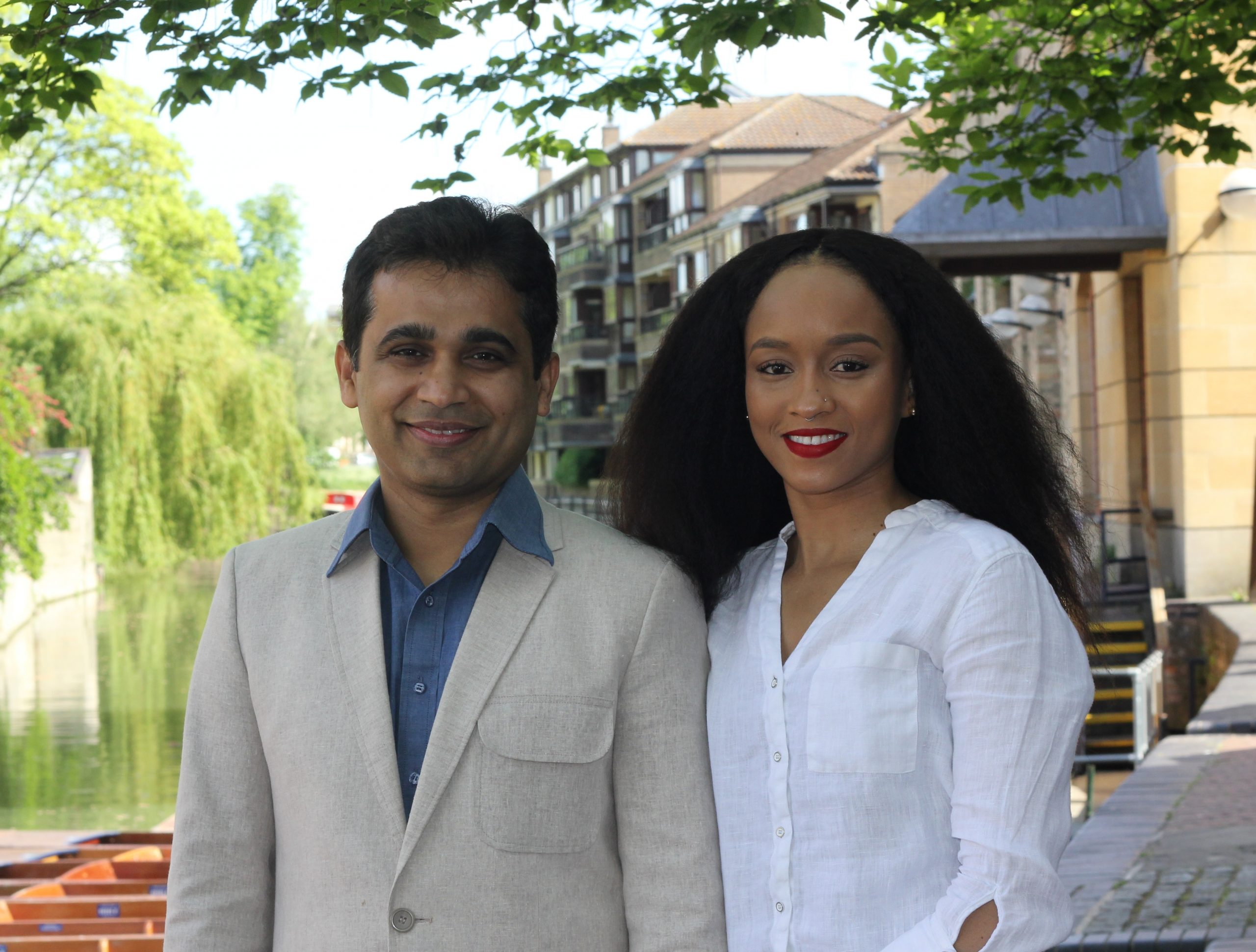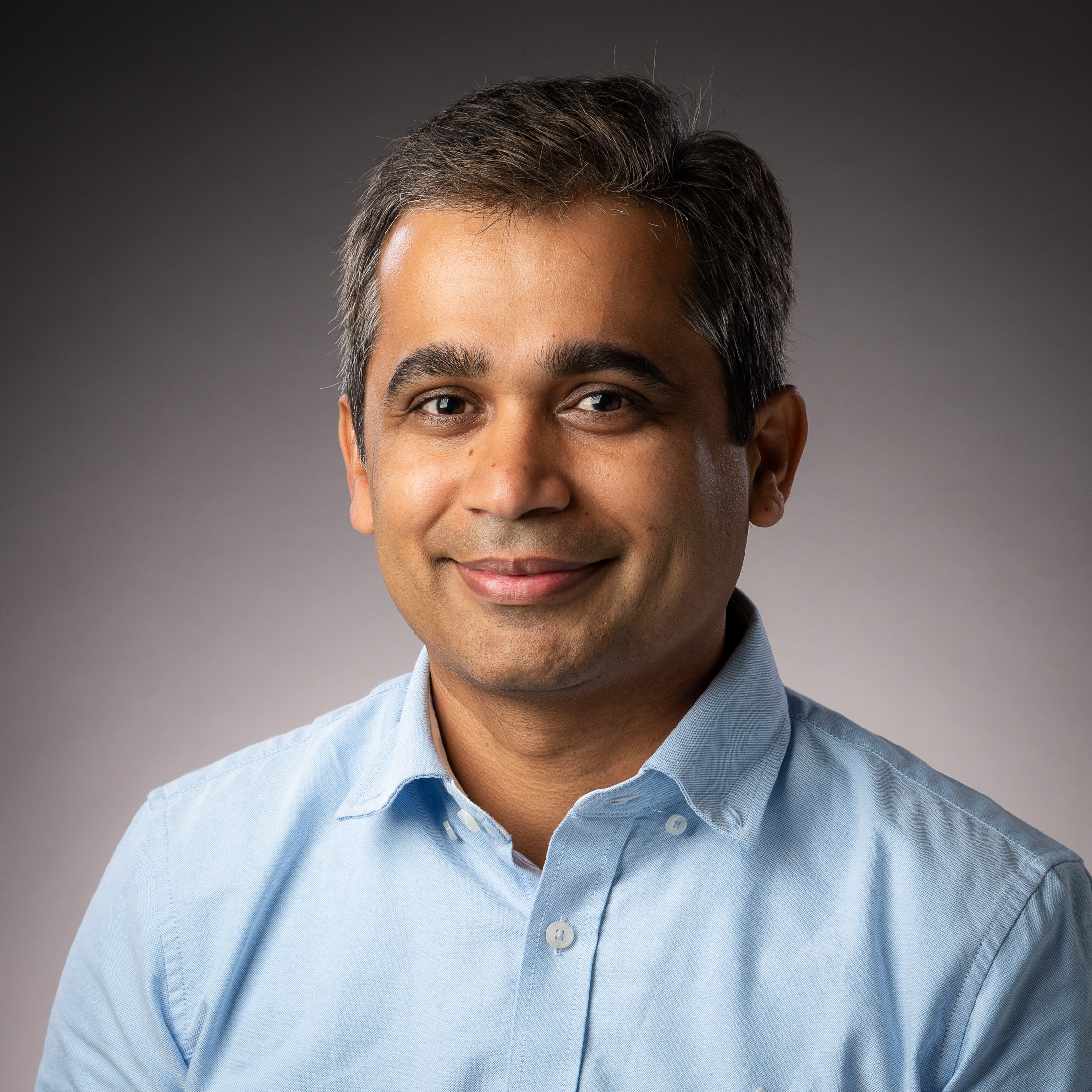
Jerelle Joseph and Arif Naveed win the Bill Gates Sr. Award for 2018.
Two Gates Cambridge Scholars have won the sixth annual Bill Gates Sr. Award in recognition of their outstanding research and social leadership.
The two Scholars – Jerelle Joseph and Arif Naveed – have been awarded the Bill Gates Sr. Award for 2018.
The Award was established by the Gates Cambridge Trustees in June 2012 in recognition of Bill Gates Sr.’s role in establishing the Gates Cambridge Scholarships, over a decade of service as a Trustee, and his engagement with, and inspiration to, many generations of Gates Cambridge Scholars.
The Award allows Scholars to recognise the impact and contribution to the Scholar community of one of their peers, with particular reference to the Scholarship’s selection criteria.
Scholars were asked to nominate a fellow Scholar for the Award by completing a 500-word statement about why that Scholar would be a suitable recipient. Selection was on the basis of how well the nominated candidates met the selection criteria while in residence in Cambridge. It is the third year running that the award has been shared.
Social leadership and academic brilliance
Jerelle Joseph [2014] is studying for a PhD in Chemistry and uses atomistic modelling to investigate protein folding. Her journey to Cambridge from Dominica was not easy. She had to overcome the loss of both her parents to continue her studies. Even before she started her studies Jerelle showed her characteristic energy and commitment to helping others when she taught for a year at her old high school, staying up until 2am doing lesson plans and giving extra classes at school, including laboratory sessions. Jerelle was nominated for her outstanding academic abilities – she has published several papers while at Cambridge; her work as Social Officer for the Gates Cambridge Scholars Council for which her creativity and dedication were highlighted as well as her generous support for incoming scholars; and her absolute commitment to her country and to the wider Caribbean community.
During her time at Cambridge Jerelle and her husband set up CariScholar, nonprofit mentorship programme which aims to connect students with successful professionals and academics in the Caribbean. Moreover, following her term as Social Officer, she overcame her own personal grief at the impact of Hurricane Maria on Dominica and responded in exemplary fashion by setting up a charity event to raise money and supplies for the relief effort. This engaged a huge part of the Gates community and Jerelle flew back and forth between the Caribbean and the UK to deliver supplies and help with the relief effort.
One nominator wrote: “As a person, Jerelle is one of the best Gates Scholars I know. She is the rare example of a person who is able to be (and often is) the life of a party, but prefers to remain sharply independent of the crowd, never failing to push for her beliefs when necessary and never following any person or idea blindly. This, in my mind, is the mark of a true leader.”
Rethinking education
Arif Naveed [2014] is doing a PhD in Education. Born in a village in south Punjab in Pakistan, he started to question why he had done so well while other bright students in his school had dropped out of the education system. This question has shaped his career in education research, which has included working on an influential disaggregated multi-dimensional approach to poverty in Pakistan. His research asks whether a rethinking of education – the curriculum, textbooks and their delivery – in Pakistan is needed to ensure it responds to local priorities and meets the aspirations of the citizens, and whether current schooling, shaped by the needs of colonial rulers, only adds to the dominance of existing elites.
Arif has worked with government, think tanks and the UK’s Department for International Development on education reform, specifically targeting the poorest, marginalised communities and girls. He is one of the lead designers of the Punjab Education Reforms currently being enacted in Pakistan with support from the UK’s DFID. These prioritise under-performing regions and aim at improving learning levels in more than 50 thousand schools in the province while also reaching out to 13 million out of school children. The impact of these reforms is greatly applauded internationally, with The Economist calling them exemplary for developing countries. He was co-author of an influential report of the US Commission on International Religious Freedom which reportedly led to a significant reduction in the pejorative portrayal of religious diversity in public school textbooks in Pakistan. Recently, his work was adopted by the Pakistan Poverty Alleviation Fund to prioritise the poorest regions for poverty reduction projects across the country.
While at Cambridge Arif has continued to publish academic articles and present his research at conferences and has co-founded a research cluster on Pakistan to explore innovative and critical scholarship on the country.
One of Arif’s nominators said: “[The Punjab Education Reforms] would not have been possible if not for Arif’s critical insights into institutional barriers to reform and regional disparities in educational performance. And this just represents the tip of the iceberg in terms of Arif’s policy impact. In 2015, the Overseas Development Institute invited Arif to author a report on Pakistan’s sluggish progress on poverty reduction under the UN-Millennium Development Goals, intended to inform the agenda for the UN Sustainable Development Goals. Through this work, Arif contributed towards a paradigm shift in the way poverty is conceptualised and measured by both the government and NGOs, by emphasising both the multidimensionality and geography of poverty. Arif has also played a vital role in textbook reform aimed at reducing pejorative content and negative portrayal of religious diversity in Pakistan.”
Arif has also been elected as an Executive Committee Member of the prestigious British Association of International and Comparative Education. In addition, he has served as the Gates Cambridge Alumni Officer and is part of a pilot intergenerational housing scheme in the UK run jointly by Cambridge Hub and Cambridge Housing Services. This involves him living this year in a home for the elderly. The success of the scheme has been covered in the news and it is expected to be scaled up nationally.
One nominator said: “Arif Naveed is one of the most remarkable people I have ever met. Arif is exceptional. He has built revolutionary reforms for poverty and education that will affect hundreds of millions of people. He has written the foundational texts on these problems and has produced very well regarded academic research in this field. And despite all of this, he still finds time to serve both the Gates community and the Cambridge community more generally. I know I speak for the vast majority of the Gates community when I recommended Arif for this award.”

Jerelle Joseph
- Alumni
- Dominica
- 2014 PhD Chemistry
- Churchill College
I grew up in the island of Dominica, in a village called Vieille Case. In 2012, I graduated from the University of the West Indies with a BSc. in Chemistry and Mathematics. I then pursued an MPhil. in Chemistry at the UWI, under the supervision of Prof Sean McDowell. In 2018, I completed my PhD in Chemistry (Department of Chemistry, Cambridge) under the supervision of Prof David Wales FRS. For my PhD work, I developed and tested computational methods to study protein folding. In particular, I worked on a coarse-grained model for proteins, developed an approach for sampling large-scale rearrangements in proteins, and characterised a disordered receptor protein implicated in HIV infection. After my PhD, I joined the group of Dr Rosana Collepardo-Guevara (Department of Physics, Cambridge) as a research associate; focusing on developing models to probe genome organisation. I am currently a Junior Research Fellow at King's College Cambridge, where I am developing multiscale computational approaches to interrogate how cells organise their contents via phase separation.
Links
https://www.carischolar.com
https://twitter.com/jerelleaj
https://www.linkedin.com/in/jerelle-a-joseph

Muhammad Arif Naveed
- Alumni
- Pakistan
- 2014 PhD Education
- Jesus College
I am an Associate Professor of Education and International Development at the University of Bath. My research focuses on the expansion of mass-schooling in the Global South and its implications for social stratification and economic inequality. I am developing a theoretical and methodological framework with which to analyse the role of schooling in intergenerational, gendered social mobility in low and middle-income countries.
My research and teaching involve reconciling interdisciplinary tensions between economics, sociology and international development, between academic inquiry, policy formulations, and implementation on the ground, and between diverse methodological frameworks.
Previous Education
University of Cambridge 2012
University of Bath 2006
Quaid-i-Azam University 2002
Links
https://researchportal.bath.ac.uk/en/persons/arif-naveed
https://www.linkedin.com/in/arif-naveed-137650b

Muhammad Arif Naveed
- Alumni
- Pakistan
- 2014 PhD Education
- Jesus College
I am an Associate Professor of Education and International Development at the University of Bath. My research focuses on the expansion of mass-schooling in the Global South and its implications for social stratification and economic inequality. I am developing a theoretical and methodological framework with which to analyse the role of schooling in intergenerational, gendered social mobility in low and middle-income countries.
My research and teaching involve reconciling interdisciplinary tensions between economics, sociology and international development, between academic inquiry, policy formulations, and implementation on the ground, and between diverse methodological frameworks.
Previous Education
University of Cambridge 2012
University of Bath 2006
Quaid-i-Azam University 2002
Links
https://researchportal.bath.ac.uk/en/persons/arif-naveed
https://www.linkedin.com/in/arif-naveed-137650b












